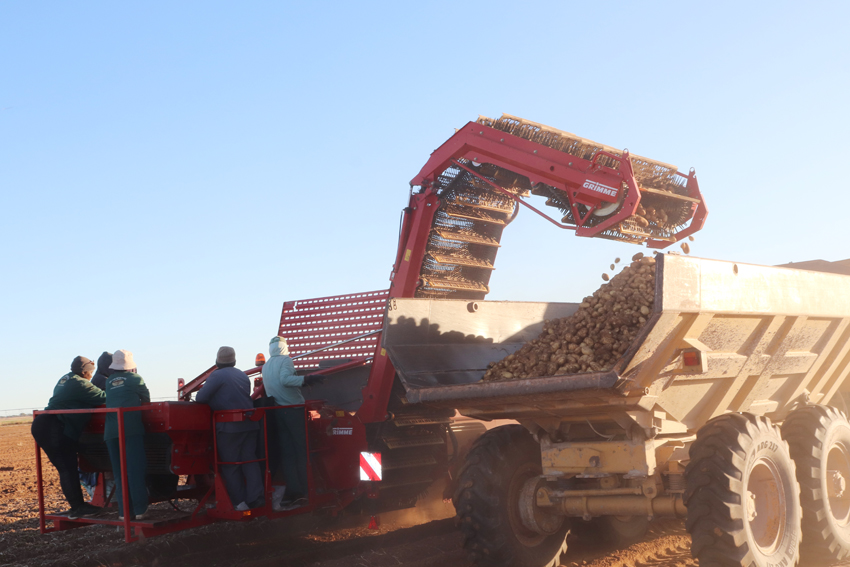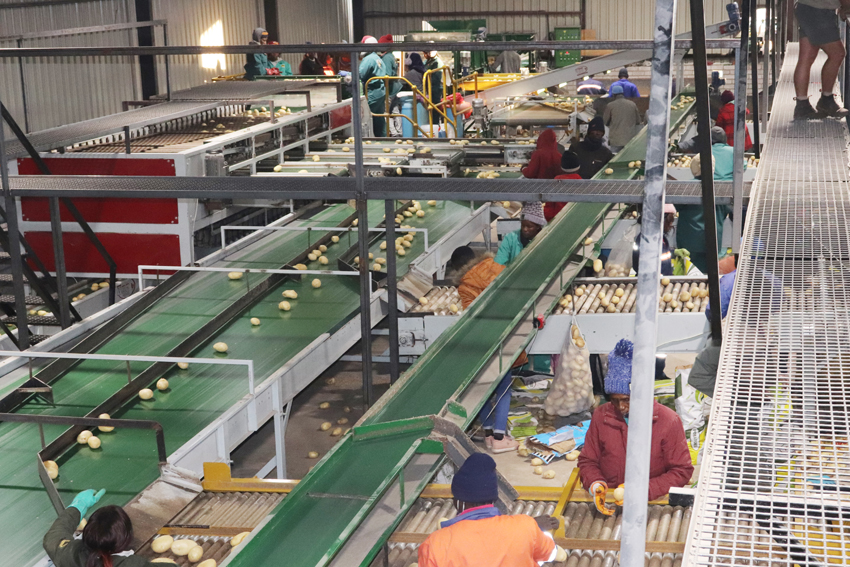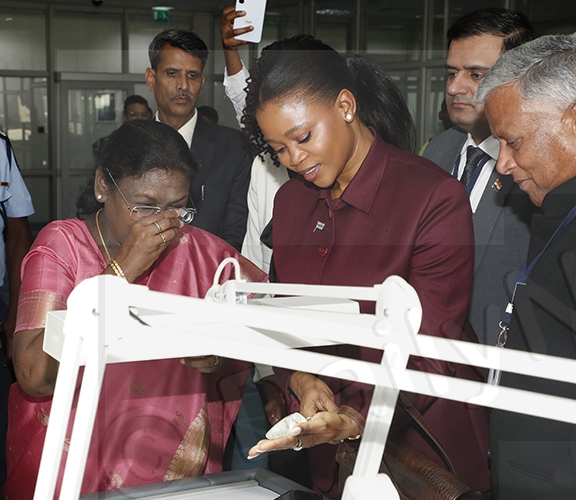Reinventing farming in GhanziThe case of Silver Horizon
26 Jul 2021
Attaining food security in Africa, especially the Sub-Saharan region remains a challenge due to the underdeveloped agricultural sector that highly relies on rainfall.
The change in climatic conditions over the years has posed challenges to traditional farming techniques, thereby calling for innovative ways of ensuring food security.
The 2009 Global Food Security Reform Document defines food security as ‘when people, at all times, have physical, social and economic access to sufficient, safe and nutritious food that meets their dietary needs and food preferences for an active and healthy lifestyle. The four pillars of food security are availability, access, utilization and stability.’
Consequently, the Botswana government continues to encourage farmers, both small and big, to employ the best technologies to produce more food for the country.
Take the case of Silver Horizon for example, which in heeding the call, transitioned from cattle farming to crop production.
The company started with only eight hectares of potatoes in 2014, but today, it plants on 140 hectares of land, producing a whooping 150 tonnes of potatoes daily during the harvest season, which is between April to June and then in December.
In addition, they produce 35 hectares of onions since the market is smaller as compared to potatoes.
They have employed some of the best irrigation systems to produce potato varieties that include Mondial, Sifra, Panamera, Larnoma and Valor.
“We decided to switch from cattle farming and a feedlot business to venture into potatoes after realising we were not making much.
We chose potatoes because they are the best value for water and also because of the big market,” explains Silver Horizon director Mr Petrus Michau.
With a 1500 hectares farm and a big warehouse for sorting and packaging, Silver Horizon has fought to establish its place in the ever-growing market.
Mr Michau reveals it has not been smooth sailing since competition has grown from about three major competitors to more than 12 in the whole country.
However, a determination to produce good quality potatoes has seen them become the main supplier of big supermarkets across the country, whose trucks perennially form a beeline to load.
They also have a sizeable clientele within the small distributors, who mainly buy low quality grades for optimal profits.
Due to the Botswana climate that is not suitable for all-year round production of potatoes like in countries such as Zimbabwe and South Africa, they usually experience tough competition around the months of July and August when the market is flooded with the winter harvest.
Additionally, potato farming needs a vast swathes of land since they must be rotated with other plants.
With the ever-growing land prices around the Ghanzi area, Silver Horizon recently acquired an additional 35 hectares 80km from Ghanzi towards Kuke to augment the current production.
“Land around here is very expensive, but we cannot plant potatoes in the same place every year, we have to rotate them with other crops to rehabilitate the soil.
We are currently exploring this new area just 20km from Kuke and we are expecting the first harvest in July, with the second batch following in July.”
The company has 150 people under its employ – all of whom are locals.
That is a big number to manage in the COVID-19 era. Add to that losses brought about by the pandemic and you have a very low bottom-line, but you must still produce.
“It is very costly to produce high quality potatoes because we have to buy essentials such as fertilizers which cushion against the unfavorable weather conditions. We also spend more than P1 million on electricity every year.”
Consequently, they decided to explore solar energy, despite the exorbitantly priced equipment and set-up, and currently 50 per cent of their electricity is from the sun.
The long-term plan is to move completely to solar energy. Silver Horizon’s work has caught the eye of the government. And they’re impressed.
“What you are doing here is interesting because for many years Ghanzi was only popular for cattle production, not crops such as these.
As the government, this is what we encourage because it aligns with our dream of becoming food sufficient as a country and gives us the confidence to close borders for imports of similar crops,” said an impressed Vice President Mr Slumber Tsogwane when visiting the farm recently.
He said Silver Horizon had become reference and benchmark for young and upcoming commercial farmers.
Food security was assured if more people could emulate Silver Horizons, he said.
And the government is ready to assist through its various programmes and companies such as the Citizen Entrepreneurial Development Agency, National Development Bank and Local Enterprises Authority.
“We commend Silver Horizon not only for employing many people from the local communities but also for tapping into the less common opportunities around here.
Most people assume that the soil is sandy and only suitable for arable crops, but we have seen that with more effort and dedication other varieties are also possible,” said the District Agricultural Coordinator for Ghanzi Mr Patrick Boitshwarelo.
Even though he appreciated the cost implications of producing crops such as potatoes with the type of soil found in Ghanzi, he was optimistic that local farmers had the potential to tap into such opportunities considering the land they had.
He encouraged them to start small but aim big. ends
Source : BOPA
Author : Kehumile Moekejo
Location : GHANZI
Event :
Date : 26 Jul 2021







